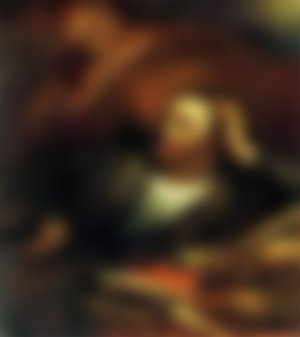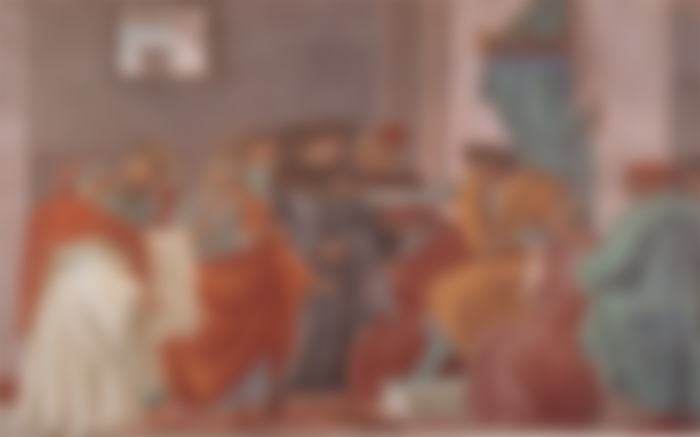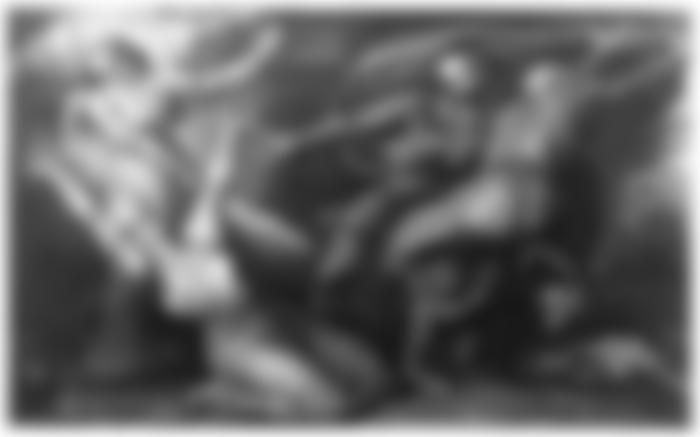The Faustian Pact is the sale of moral purity in exchange for worldly short-term success and power . Faustian action is to leave the divine side and join the side of Satan for the sake of worldly interests. The most influential literary character associated with this conventional concept is Faust. No other character seems to have gained as much universality as Faust in the way of Western Renaissance thought and the emergence of modernity.
Man is basically divine. He has to adhere to moral standards for the sake of eternal peace. But the desire to make oneself powerful and unrivaled can overwhelm him too. Philosophy, medicine, poetry and theology are useless there. Although Faust was a scholar of all sciences, he did not give up his desire to rule the world. So dived into magic and forbidden science. The next eternal punishment is accepted in the covenant with Satan; Dominance of earthly life in return. But Faust is a man. So the tension between good and evil does not stop.
Can Faust really become superhuman?
Will you be able to protect yourself till the end? Or will be lost in weakness.
Is liberation possible then?
Is man able to come out of the shelter of God and deal with his own existence?
Thousands of questions that give birth. It is against this background that countless narratives have been invented, which have influenced many writers, musicians, painters and other fields of art.

Faust, the most influential character in post-Renaissance Europe; Anton Kaulbach
Formula
The story of Theophilus of Adana is quite common in the 6th century . In his intense desire to become a bishop, he made a covenant with Satan. Of course, the structure of that society was much the same. Ordinary people used to look at him with suspicion whenever he saw any abnormality in him. He wondered if he had anything to do with evil. Even scholars, such as Pope Sylvester (948-1003) , have had to deal with Satan. The main reason behind the massacre of medieval witches was that witches had sold their pure energy to Satan.
There are thousands of stories about Faust. His footsteps in all fields of classical literature from poetry, music, drama, cinema, painting. `From The Picture of Dorian Gray to Little Shop of Horror . As a result, not all the details and consequences were the same. However, Goethe's Faust is considered the criterion.
Faust, a magician and alchemist, lived in northern Germany in the late fifteenth century . According to some, Faust is just a legend, someone draws clues to the Bible. 'Adultery, witchcraft, hatred, strife, strife, anger, rebellion, heresy, murder, drunkenness, merriment, and all that has already been said. Whoever does that has no right in the kingdom of God. ' (King James Bible, Galicians, 5: 20-21) Majusi Simon in the New Testament of the BibleThe story of a practitioner of magic is quoted. He endeavored to attain spiritual strength, as did the disciples of Jesus Christ. But not through loyalty, but through money. Spirituality is God-given, not for buying or selling. The name 'Simney' originates from his name; Money is the sin of buying or selling spiritual energy. It is not uncommon for Faust to have an influence on character thinking.

Peter and Paul face Simon; © Filippino Lippi
Folklore about Pan Tardowski was very popular in sixteenth-century Poland . He sold his soul to Satan only to gain miraculous powers. Later, the dead wife of the contemporary king was lifted from the grave and placed on a shelf. After his death, Satan carried him to the moon. Now Abdi Pan is living there.
The legend of Synodoxus, a doctor in Paris, has been around since the eleventh century . Jacob Biderman later adapted him into a play. Synodoxus was a compassionate and pure man. He used to engage in various honest deeds. But it was not too late to look at one's actions and become arrogant. In the end, the punishment is for that arrogance. A little different legend is found in the history of West Germany and the Netherlands in the fourteenth century. A young woman named Mary surrendered to Satan. He studied rhetoric, music, logic, grammar, geometry, mathematics and astronomy. Later, however, Mary herself apologized to God. After receiving forgiveness, he went to heaven.
John D. was a sixteenth-century mathematician. He was known for practicing astrology, alchemy, magic and occultism. There were legends about him like Pan Tardowski or Synodoxus. What inspired Christopher Marlowe to draw Faust's character. The dominance of occultism, occultism, and alchemy in medieval Europe may also have played a role in controlling this narrative.
In any case, the first mention of Faust was in a manuscript dating to 158. Before 1592, the book was written by a p. F. Translated into English by Gent. Named 'History of the Demonable Life and Deserve Death of Dr. John Faustus'. Most likely also influenced by the famous English playwright Christopher Marlowe. Following that plot, he wrote ' The Tragic History of Dr. Faustus' . On the other hand, Johann Wolfgang von Goethe also became a German and read Marlowe's writings. Saw the drama centered on Faust. Faust, the best creation of German literature, gave the gift of the essence of everything in his later life .

Faust was born disgusted with the common scriptures; Jean-Paul Laurens
General statement
Some variation is observed in Faust's description. Goethe's story begins in heaven. Angels are worshiping God. Satan accuses Mephistopheles of raising God. The people of the world are corrupt. If he wants, he can show the evidence by misleading the wise like Dr. Faust. God also accepted the challenge of Mephistopheles. Nah, Faust will always be an honest man.
Scholar Man Faust. Yet the boundless emptiness inside. He came back to kill himself. Alchemy, medicine or theology cannot quench the thirst. Everything seems hollow and meaningless. Satan Mephistopheles takes advantage of that opportunity. Talk to Faust. Mephistopheles rebukes the scholar's current predicament. Shows his own miraculous powers. The power that Faust can get if he wants, more power than that. Electricity plays in the veins of the scholar. Past life philosophy, medicine and theology have frustrated him. But this is a golden opportunity. Faust wants that power. Mephistopheles has no objection. He will do whatever he wants to do under Faust. Only one condition. The next eternal life must have been Faust's slave to Mephistopheles.

Faust is in agreement with Satan; Sche Ary Scheffer
This agreement changed Faust's fortunes. Became the most powerful man in this life. Mephistopheles proves obedience through various events. Faust became involved in an illicit affair with a young woman named Gretchen. Gretchen's brother was killed. The accused scholar covered his body a lot. Repentant Gretchen kills her own child. People arrested the killer's mother and sent her to jail.
Meanwhile, Faust's golden age. With the help of Mephistopheles, Gretchen is released from prison. But power is not everything. Gretchen has surrendered her destiny to God out of remorse. Reached the head of sin but surrendered. As a result, Faust failed. Returns to his own world through Mephistopheles. Faust, painted by Christopher Marlowe, has two angels, good and bad. Those who are constantly engaged in the conflict of giving instructions to Faust. Repeatedly, Faust follows the word of the evil angel. Satan also cooperates in all cases. When Faust's term expired, Mephistopheles took him to eternal hell. This time the poor man repented for his decision.
Philosophy
The beginning of the Faust narrative as one of the characters of moral education. Preachers preached extensively about the consequences of rebellion against God or disbelief. Faust is a clear example of misguidance, which has sunk into worldliness. It is impossible to release him with simple eyes. But later writers thought he was released. Where Faust returns to the end of the day. Achieving God's satisfaction.
Man's limitations have always eaten away at Faust. He wants to overcome this obstacle. Wants to rule the world. People are inherently wrong. He always has to understand the conflict between good and evil. You have to choose between the two. Even after a lot of greed and attraction, at the end of the day, one has to keep one's moral position high. People are not perfect. You don't have to be perfect to be honest.
Throughout the narrative, Faust symbolizes the innate nature of human self-determination. Good and evil - the conflict of the two angels is basically the conflict of the two forms of his inner being. The consequences of violating the laws of nature are not good. Faust also sinks into deeper darkness through each transgression. That means Faust is not a character of despair. At least Goethe wants to present Faust as an optimist. Want to establish as the main controller of the world power. It is God's inheritance that establishes man as the ruler of the world.
The whole proverb
Many authors have laid the philosophical basis for each character involved in depicting the character of Faust. Christopher Marlowe is one of them. In linguistic skills his Munsiana is simply comparable to Shakespeare. According to Dr. Faustus, just before signing the treaty with Mephistopheles, Faust asked:
- Well Mephistopheles, what is the benefit of your Lord with my soul?
- The growth of his empire.
- Is this the only reason he persuades us?
- It is no less comforting to have a partner in difficult times for the unfortunate.
Mephistopheles' answer to the question of hell was a lot of Bible recitation. জন্য For uncircumcised people, all conditions are in hell. 'When the whole earth is destroyed, every living thing will be cleansed. At that time, every place that is not heaven is hell '. Faust himself realized his deviation. Hesitation has repeatedly arisen in the voice. There was a cry of remorse on the lips.
Alas, if you do not become wind
, Lucifer will take you to hell.
O soul, turn into a tiny drop of water,
then merge into the sea, so that it can no longer be found.
Oh God, don't be angry with me,
you snakes and scorpions, give me some more time,
don't open the gates of hell, don't come Lucifer,
I will burn my book! Ah, Mephistopheles! '

The consequences of Faust have been portrayed differently in different sources; Wilhelm Hensel
Goethe's accent is more bold. 'As long as Abdi believes in himself, you know the way of life.' "Man sees in the world what he holds in his heart." Goethe's Faust's voice echoes that of a real Renaissance man.
Whatever the destiny of man,
I want to taste from the depths of being.
I want to embrace the highest to the lowest point, I
want to hold all the happiness and sorrow in my chest.
To thus increase one's self to the highest potential.
To be immersed in everything in detail.
Faust's appeal is for youth. 'I had nothing. But that's enough for youth-an exuberance in Maya, an intense thirst for truth. Give irresistible old emotions, happiness that touches the surface of pain, the ability to hate and the deep devotion of love. Oops, give me back my youth '.
The rest
Many days have passed. Europe has changed, Christianity itself has changed. So the consequences of Faust have also changed. Humanism, science-mindedness, secularism spread in post-Renaissance Europe. The sword of the church is set aside. Faust is like Europe itself. Carries the signature of transformation from the populist society of Europe to modern society for five hundred years. So the topic of Faust comes up in modern films, novels, plays, poems, paintings, songs, and even comic books.
Faust turned his back on God and embraced the world. In the same way, Europe has sidelined religion and embraced science, technology and worldly establishment. Faust’s outcome is somewhere auspicious and optimistic; Somewhere destructive and pessimistic. So where will the consequences be in Europe? The Bible says, 'What is the use of insulting the soul and owning the whole world at the end of the day' ?
This article is about Faust, the legendary character of European folklore and most influential philosophy after the renaissance.
References:
1) The Tragical History of Doctor Faustus, Christopher Marlowe, Routledge, London, 1965
2) Faust I and II, Johann Wolfgang von Goethe & Stuart Atkins & David E. Wellbery, Princeton University Press, Year: 2014
and which are hyperlinked bellow.
Featured Image: Fantasy of Faust by Mariano Fortuny All the references are hyperlinked below.




